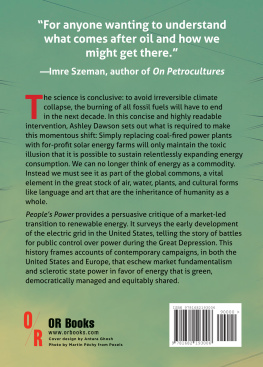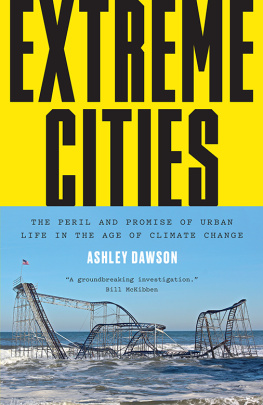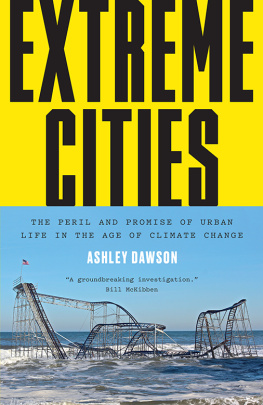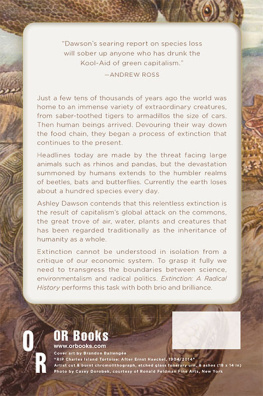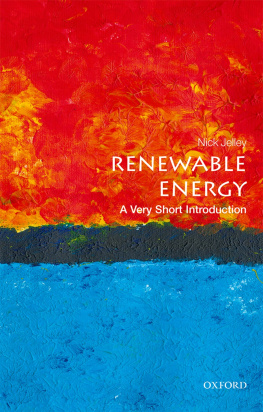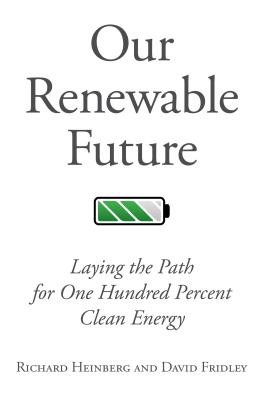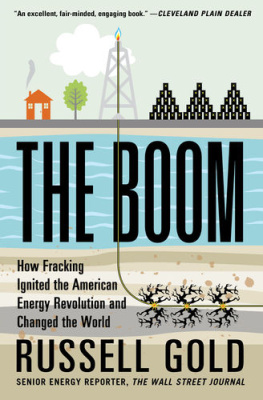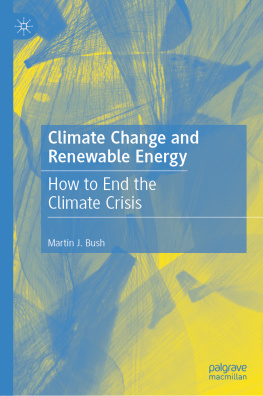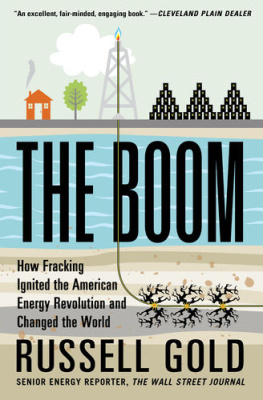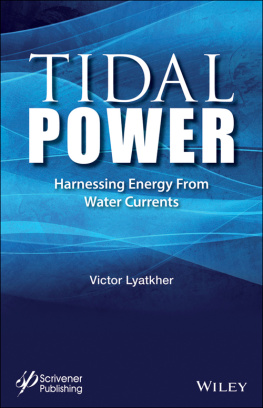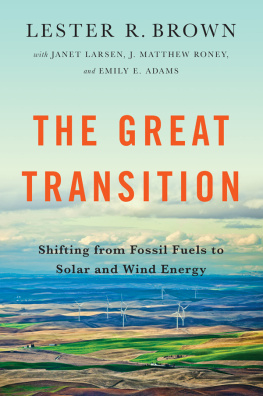



All rights information:
Visit our website at www.orbooks.com
First printing 2020
Published by OR Books, New York and London
2020 Ashley Dawson
All rights reserved. No part of this book may be reproduced or transmitted in any form or by any means, electronic or mechanical, including photocopy, recording, or any information storage retrieval system, without permission in writing from the publisher, except brief passages for review purposes.
Library of Congress Cataloging-in-Publication Data: A catalog record for this book is available from the Library of Congress.
Typeset by Lapiz Digital. Printed by Bookmobile, USA, and CPI, UK.
paperback ISBN 978-1-68219-300-6 ebook ISBN 978-1-68219-244-3
TABLE OF CONTENTS
CHAPTER ONE: INTRODUCTION
The Empire State Building was lit up emerald green on a chilly night in the winter of 2018 to celebrate New York Citys announcement that it would be divesting its $5 billion pension fund from investments in fossil fuels. In tandem with this dramatic move to divest, the city also filed suit against the five biggest oil corporations, seeking reparations for the billions of dollars in damage that climate change has already inflicted on New York. It was a historic moment: The biggest city in the worlds most powerful nation had come out against the planets richest, most powerful, and most destructive industry. The divestment announcement was a landmark victory for the vast majority of the citys people against the fossil fuel industry, its well-heeled and powerful backers on Wall Street, and the globe-girdling military-industrial complex that supports contemporary fossil capital.
But it will take time for New York Citys actions to have an impact. Divestment of the citys pension funds is not expected to happen until at least 2022. Also, Big Oil employs legions of lawyers who are adept at using the courts to obstruct justice and forestall reparations. Meanwhile, the Trump administration has unleashed policies of such environmental destructiveness that their impacts are likely to be measured in the geologic record, in degrees of temperature increase, and in feet of sea level rise around the world. By pulling the United States out of the Paris Agreement on Climate Change, and by aggressively expanding extreme forms of extraction such as hydrofracking, Trump has proudly proclaimed himself to be the embodiment of the Capitalocene, the age in which capitalisms relentless drive to expand has generated massive carbon emissions, pushing planetary ecosystems into states of unpredictable, deadly turbulence. Of course, carbon emissions are collective and historical, so it would be wrong to suggest that Trump is solely responsible for planetary ecocide, but his election came at a critical juncture for the struggle to avert cataclysmic climate change. In declaring his intentions to unleash unfettered fossil capitalism, Trump epitomizes and promises to grievously aggravate the catastrophic contradictions of the Capitalocene.
While those who benefit from fossil capitalism might choose to ignore climate change, scientists are recording increasingly alarming trends in planetary systems. On the day Trump was elected, November 6, 2016, the World Meteorological Organization (WMO) released a report announcing that the past five years were the hottest ever recorded. In 2019, the Intergovernmental Panel on Climate Change released a series of doomsday reports that added to this apocalyptic drumbeat. Terms like global warming and climate change are far too anesthetic to characterize the crisis of our times: We are living through a planetary environmental cataclysm that is on track to exterminate most life on Earth.
The climate justice movement that won such a glowing victory with the announcement of New Yorks divestment plans is driven by one clear imperative: the cities and nations of the world must cease burning fossil fuels if we are to avert looming planetary ecocide. Though it has many facets, the climate crisis is above all an energy emergency. The energy sector is responsible for at least two-thirds of all greenhouse gas emissions. This inconvenient truth has generated a sense of urgency around the need for an energy revolution, a wholesale shift from dirty fossil fuels to clean renewable energy.
The great task of our times is to stop all new fossil fuel infrastructures. All of our other efforts to fight climate change will be useless if the world does not transition away from fossil fuels in the next decade or so. If we wish to prevent catastrophic climate disruption, we cannot dig up more coal, drill for more oil and gas, and further exploit tar sands. And we must also stop building pipelines and export terminals to transport freshly extracted fossil fuels. In other words, although some portion of currently existing reserves must be used to power the transition to renewables, we have to stop prospecting for, extracting, and burning fresh supplies. This is because the carbon stored in currently operating fields and mines is enough to push the atmosphere above a critical threshold, generating warming of more than 2 Celsius and unleashing catastrophic feedback effects. And this must happen quickly: the longer we tarry, the more wrenching the transition will necessarily be, and the greater risk we run of triggering unstoppable feedback effects in planetary ecosystems that catapult us toward planetary ecocide.
The movement for climate justice has developed a range of innovative nonviolent direct-action tactics, as well as an expanding array of legal and political strategies, to block pipelines and other fossil fuel infrastructures. The movement has won some important victories, but as I will show later in this book, we are battling a global bonanza of extreme fossil fuel extraction. If humanity is to prevail in this fight for a habitable future, we must be clear about what the obstacles are that prevent a transition beyond fossil fuels. The climate justice movement must set forth clear and emancipatory alternatives to fossil capitalism. And we must be clear that our struggle is not just about remaking our energy infrastructures, but also about transforming the cultural outlooks and institutions that fossil capitalism has generated.
The trouble is that cheap and abundant fossil fuels are the basis for widely accepted expectations of unbridled freedom, ceaseless growth, and spiraling consumption in the worlds developed nations. To be seen as a winnerand sometimes simply to survivein todays hyper-competitive world is to be able to participate gleefully in time- and space-annihilating patterns of mobility and consumption fueled by the combustion of ancient sunlight. For green capitalists, the transition from fossil fuels to renewable energy is well underway and will not disrupt any of the fundamental expectations of capitalist modernity.
Unfortunately, this optimistic outlook is based on wishful thinking. The United States gets less than 10 percent of its energy from renewable energy sources like wind and solar at present, And despite a diminishing rate of global carbon emissions in recent years, aggregate emissions continue to increase, pushing atmospheric carbon concentrations and global warming across dangerous thresholds toward runaway climate chaos. In other words, while we might be witnessing a glut of fossil fuel production that has driven prices down to historic lows and made some industries, such as coal, uncompetitive in some nations, the fossil fuel era is emphatically not over. Although renewable energy production has certainly been increasing, it has not been growing fast enough to displace fossil fuels, and it will not do so without decisive political action to shift the world toward a just transition. Current market-based efforts to shift to renewable energy are simply not working at the necessary pace and scale.
Next page
